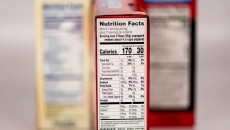Label Insight report shows millions of dollars in missed opportunity for brands selling online

The report is based on an analysis of Q4 2019 customer data from Label Insight’s e-commerce insights platform and shopper panel data and covers 77 food categories from 790 brands, tracking 195 commonly-searched attributes.
“Consumers today have an extensive and varied list of things they care about when shopping for CPG products online — things such as ingredients, functional benefits, environmental stewardship, animal welfare, and human rights. These product attributes are driving search behavior and changing which brands and retailers win the purchase as a result,” noted the report.
However, the vast majority of brands are not claiming these attributes in their online product listings, and it’s costing them, said Label Insight.
CPG brands and search optimization
“The current online grocery experience doesn’t match the way consumers shop,” stated Label Insight, noting that many consumers follow a particular dietary regimen, have food sensitivities, or care about environmental stewardship and animal welfare, and thus, are looking for product that meet certain criteria.
“Most CPG brands aren’t optimizing their product listings with the attributes that consumers are searching [for],” said Label Insight.
According to the report, 84% of brands fail to claim one or more of the three most searched for attributes for which they qualify, and 51% of food products fail to claim their single most-searched attribute.
For instance, Label Insight found that 99% of the top three searched for attributes within the cheese category (ketogenic, low-carb, and protein) are not claimed by brands.
‘Sugar-free’, the second most-searched for attribute in the milk category went unclaimed 78% of the time, and ‘vegan’, the second most-searched for attribute in the snack category went unclaimed 76% of the time, according to Label Insight.
“As a result, brands are neglecting revenue opportunities from missed sales and losing market share they could be claiming if they were optimizing for searched attributes,” said Label Insight.
Brands that update their product listings with relevant attributes can grow their e-commerce business by 15% to 30% without spending additional dollars on online advertisement, claimed Label Insight.
In addition, by failing to claim a top attribute, products were missing, on average, 89,000 Amazon searches, according to the report.
Label Insight calculated* the annual missed revenue opportunities from unclaimed search volume by brand (top 100):
- PepsiCo: $14,866,665
- The Kraft Heinz Company: $9,696,955
- General Mills: $7,927,156
- Conagra: $4,147,444
- Kellogg: Company: $3,456,504
*The company used an average 2.5% click-through-rate and 25% conversion rate to calculate potential missed revenue from unclaimed search volume for each attribute search.
What can brands do?
First, having a thorough understanding of your customer base and their behaviors is essential to capitalize on shopping trends and understanding relevant product attributes, said Label Insight.
“Customers may search ‘keto’ in high numbers one month but search ‘low carb’ more frequently the next. Search terms vary by platform as well. The data revealed that customers looking for cold coffee most frequently searched the term ‘cold brew’ on Amazon, while Walmart’s customers favored ‘iced coffee’.
“As a grocery CPG brand, you need a central source of up-to-date data relevant to your customers. This data will provide insight on what terms customers are searching and illuminate trends that will influence demand in the future,” noted Label Insight.
Brands must also ensure that they are including relevant attribute keywords in the retailer set-up process for each SKU, which will in turn tie the product to those key words in the retailer taxonomy and in the back-end content of its online platform, added Label Insight.
Product titles and descriptions should prioritize relevant popular attributes, said Label Insight. According to its research, products including an attribute in the first 40 characters of their title received 2x more clicks than products where the attribute appeared later in the title.
Inclusion of attribute key words should also extend to the images and the ‘digital shelf’, said Label Insight.
“Consumers looking through these images should be able to quickly see relevant attributes that they value. Adding relevant product attribute information to hero images (like “gluten-free” or “organic”) will encourage shoppers to click.”
According to Label Insight, a ‘leading snack brand’ boosted its conversion on Amazon by 11% by making simple description changes and adding previously unclaimed product attributes.
“A simple change that effectively leveraged product attribute data took a previously-depleted digital shelf and stocked it fully with the products consumers are literally hungry for,” said Label Insight.


















